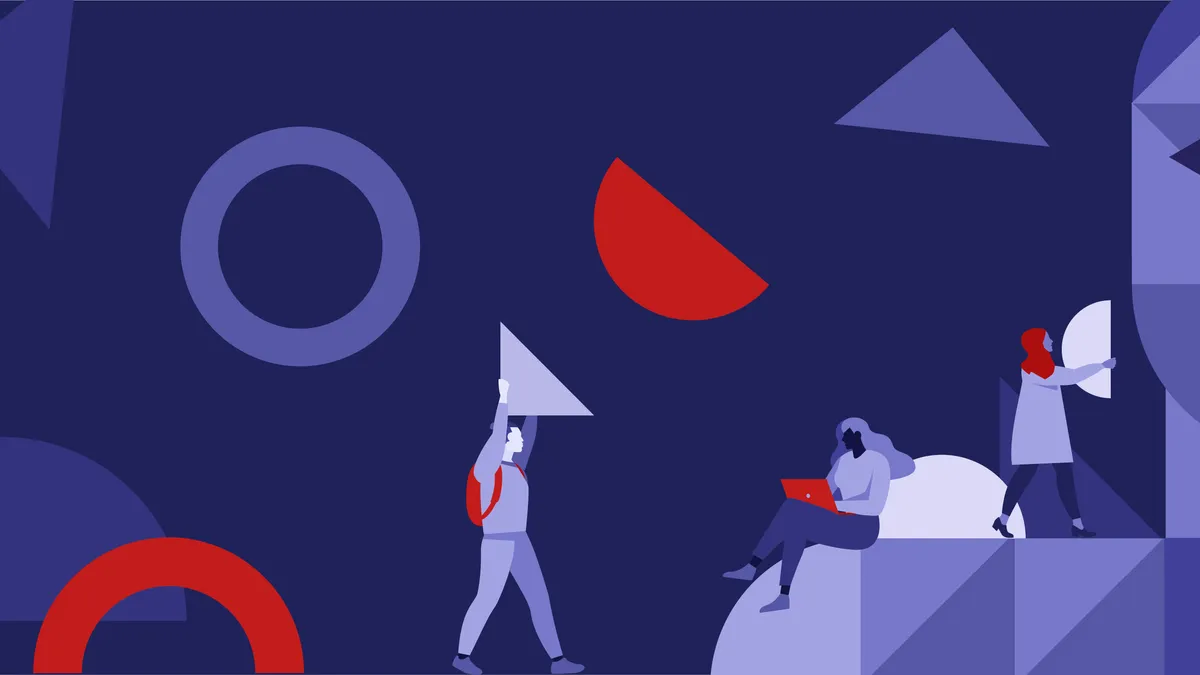Cultural challenges aren’t going away in the workplace. In fact, they’ve risen to the top of HR’s list of struggles.
HR Dive’s Identity of HR 2024 survey, which collected responses from 490 HR professionals, found that culture is their biggest challenge this year, surpassing hiring, training and compliance.
One reason HR professionals are struggling with culture is a simple one: people themselves. “In the corporate world, we tend to prefer solutions that are structured and scalable,” said Mark Scullard, senior director of product innovation at Everything DiSC. But that’s not how people work. “Human stuff is messy and involves a wildly diverse set of issues,” he said.
That can be an advantage in creating a diverse and welcoming workplace, if done appropriately. And it should be, not just because it’s the right thing to do for workers, but it also keeps them on the job and engaged with their day-to-day work lives, experts say.
“If [culture] is supportive and positive, employees feel engaged and motivated to perform. If it’s toxic, and all the things that come with a toxic environment, then we have issues with disengagement,” said Jen Priem, senior principal and research advisor at Gartner. That can lead to “difficulties with business outcomes and a whole host of other issues.”
Building trust
Problems with culture can manifest in different ways, including the inability of people to collaborate, lack of trust and problems giving and taking effective feedback, said Scullard.
A “trust intervention” can help, he said, especially when it comes to companies going through change. While it may be easy for managers to assume workers are struggling with the same things when circumstances change, he said, workers may be facing a different set of problems due to less control and less forewarning. If managers don’t learn that, and recognize it, workers may not trust them, which can spill over into other aspects of their workplace and lead to discontent.
By building trust, employees and managers can have better conversations about where someone is struggling and address it. “That’s the foundation for that person being able to give you goodwill,” he said.
Managers can also work on how to give feedback in better ways, especially since feedback is inherently emotional. “We can’t help but bring our humanity into that situation where we’re receiving feedback,” he said, which can be tricky since it’s easy for feedback to become more evaluative and judgmental.
Managers who struggle to give feedback should receive training and support in doing so, since most people haven’t had that kind of instruction, he said. Not only will it benefit the person receiving the feedback, but give that manager tools in how to do it right and alleviate some of their stress around the process, too.
Building better managers
There is no one silver bullet for addressing culture, said Scullard, but companies can do things over time that will lead to change, including articulating the characteristics of the culture that a company wants to move towards (and move away from, if applicable), and using DEI programs, feedback, surveys and employee engagement initiatives, which will help teams connect and “see each other as real people.”
Making sure employees are recognized for their contributions can be an important tool in building culture as well. “When we look at why employees are looking for a new job these days, recognition is one of the big drivers,” said Priem. That recognition should come directly from a manager, since they are the “first line of leadership that [workers] see most regularly, and that has the most impact on their day-to-day experience,” she said.
This might also mean investing in “human-centric managers,” so they can develop skills to navigate difficult conversations and foster team cohesion and feelings of safety at work. But that also takes work, since “managers have a lot on their plate right now,” she added. So companies need to make room for managers’ well-being and give them tools to have difficult conversations and build a cohesive team, she said.
















